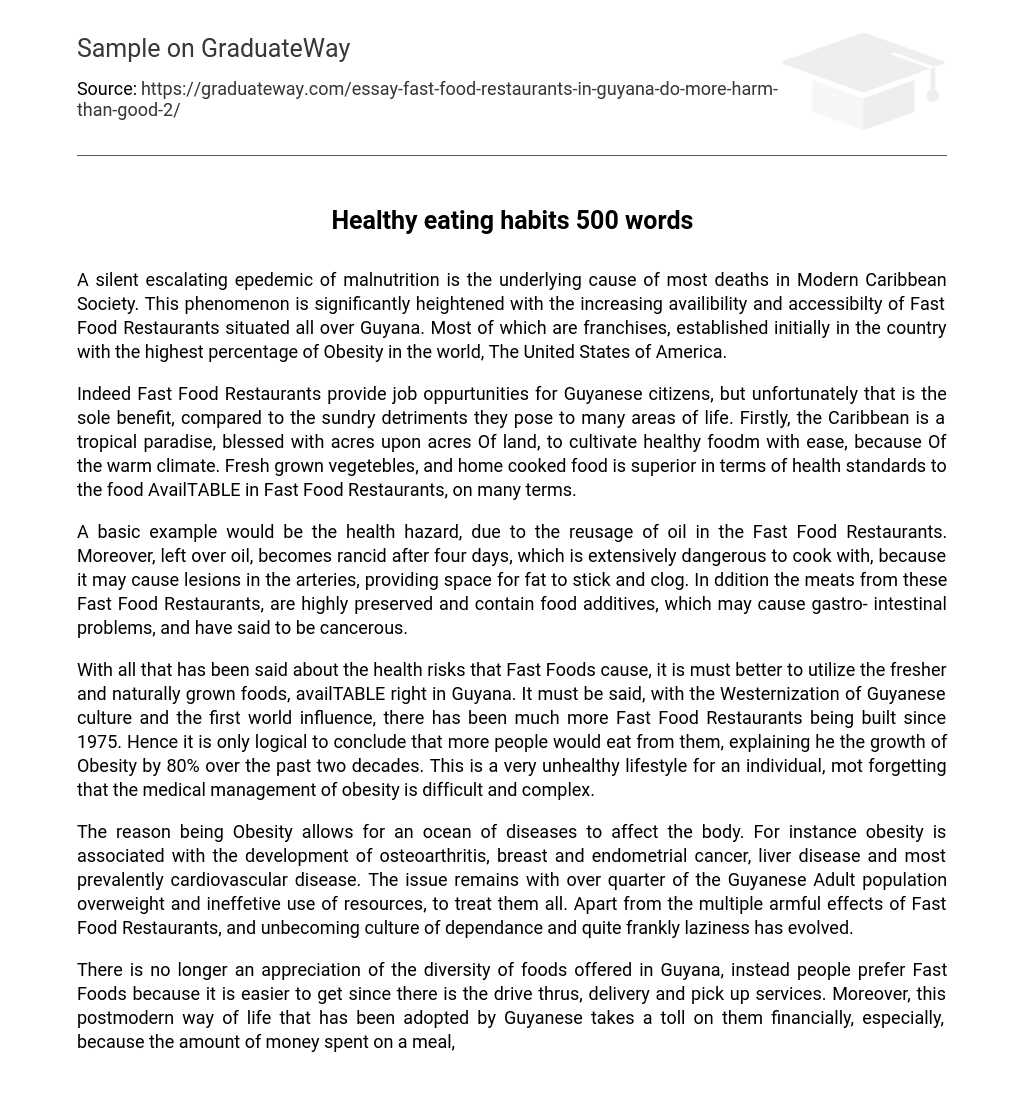In Modern Caribbean Society, there is a silent and increasingly severe epidemic of malnutrition. This issue is the primary cause of most deaths, which is further intensified by the easy accessibility and proliferation of Fast Food Restaurants in Guyana. It should be acknowledged that many of these restaurants are franchises that have their origins in the United States, a country recognized for having the highest obesity rate globally.
Despite the employment opportunities provided by Fast Food Restaurants in Guyana, the drawbacks of these establishments overshadow their advantages. One main reason is that the Caribbean region has ample land and a favorable climate, enabling the production of nutritious food. The quality of meals cooked at home with fresh ingredients and locally grown vegetables far exceeds what is offered in Fast Food Restaurants.
A common example of a health hazard caused by the repeated use of oil can be observed in Fast Food Restaurants. When oil is left unused for more than four days, it becomes rancid and presents significant risks during cooking. This rancid oil can lead to arterial lesions, promoting fat accumulation and blockages. Furthermore, the meat utilized in these restaurants is extensively preserved and includes food additives that may cause gastrointestinal problems and have been linked to cancer.
In Guyana, the consumption of fresh and naturally grown foods is highly recommended in order to avoid the various health risks associated with fast food. It should be noted that there has been a significant rise in the number of fast food restaurants in Guyana since 1975. This increase can be attributed to the westernization of its culture and exposure to influences from developed countries. Consequently, it can be reasonably assumed that more people would opt to eat at these establishments. As a result, obesity rates have increased by 80% in the past two decades. This lifestyle choice has negative implications for individuals’ well-being and poses complex challenges for medical management.
The impact of obesity on the body manifests in several ways, causing a range of diseases including osteoarthritis, breast and endometrial cancer, liver disease, and primarily cardiovascular disease. The situation is exacerbated by the fact that over 25% of adults in Guyana are overweight, which leads to insufficient resources allocated for their treatment. Moreover, the presence of fast food establishments and a culture that promotes reliance and idleness have further magnified these negative consequences.
The appreciation for diverse foods in Guyana has diminished, with people preferring fast food due to its convenience through drive-thrus, delivery, and pick up services. This adoption of a postmodern lifestyle in Guyana has a significant financial impact, as the money spent on a meal could be used to cook healthy food for multiple days. Thus, the socioeconomic issue arising from this becomes apparent. Fast food restaurants, which originated from American influence, have expanded and developed over time, promoting an unhealthy lifestyle. While these establishments may create job opportunities and save time, they do not adequately compensate for the potential health problems and diseases they may cause. Considering Guyana’s status as a developing country, any major setbacks, especially those impacting its most valuable resource, the human resource, are simply unaffordable.





